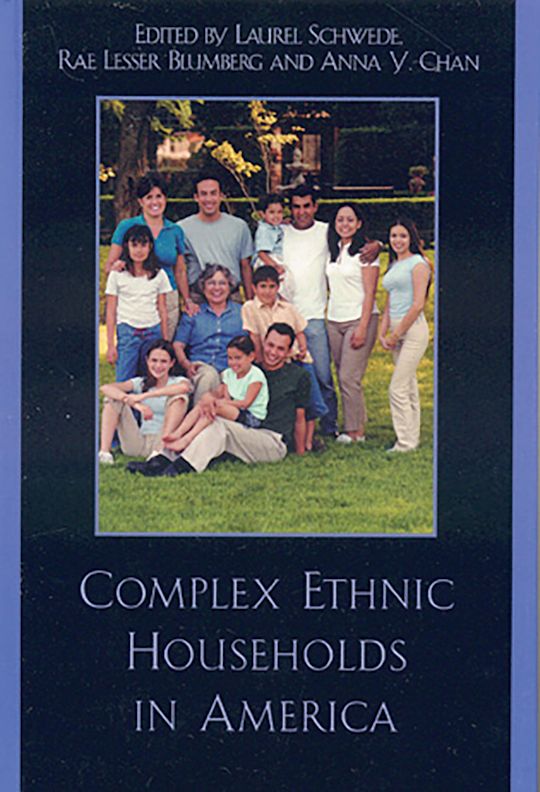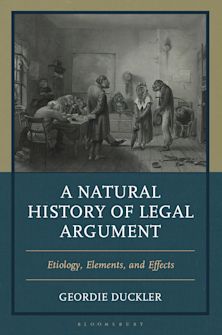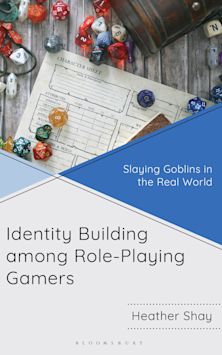- Home
- ACADEMIC
- Sociology
- Sociology - Other
- Complex Ethnic Households in America
Complex Ethnic Households in America
Laurel Schwede (Anthology Editor) , Rae Lesser Blumberg (Anthology Editor) , Anna Y. Chan (Anthology Editor) , Amy Craver (Contributor) , Patricia L. Goerman (Contributor) , Bernadette J. Holmes (Contributor) , Jennifer Hunter Childs (Contributor) , Tai S. Kang (Contributor) , Laurie Schwede (Contributor) , Nancy E. Tongue (Contributor)
- Textbook
Complex Ethnic Households in America
Laurel Schwede (Anthology Editor) , Rae Lesser Blumberg (Anthology Editor) , Anna Y. Chan (Anthology Editor) , Amy Craver (Contributor) , Patricia L. Goerman (Contributor) , Bernadette J. Holmes (Contributor) , Jennifer Hunter Childs (Contributor) , Tai S. Kang (Contributor) , Laurie Schwede (Contributor) , Nancy E. Tongue (Contributor)
- Textbook
This product is usually dispatched within 1 week
- Delivery and returns info
-
Free CA delivery on orders $40 or over
You must sign in to add this item to your wishlist. Please sign in or create an account
Description
What commonalities link Navajos in their vast Arizona reservation and rural whites in upstate New York? More than you'd suspect when both live in complex households that include people other than nuclear kin. This groundbreaking interdisciplinary book on complex households in six U.S. ethnic groups-the other four are the Inupiat of Alaska, urban African Americans, Korean immigrants in New York City, and Latino immigrants in central Virginia-uniquely combines rich ethnographic descriptions with theory-linked overviews and Census 2000 data. It explores interactions of household structure, ethnicity, and gender, while illuminating factors affecting the formation and dissolution of complex households, which are becoming increasingly important as ethnic diversity increases throughout the U.S.
Table of Contents
Chapter 2 The First Arrivals: Navajo and Inupiaq Eskimos
Chapter 3 I Live Here and I Stay There: Navajo Perceptions of Households on the Reservation
Chapter 4 Household Adaptive Strategies among the Inupiat
Chapter 5 The Recent Arrivals: Latinos and Koreans
Chapter 6 Household Structure and Its Social and Economic Functions among Korean American Immigrants in Queens, New York: An Ethnographic Study
Chapter 7 Making Ends Meet: The Complex Household as a Temporary Survival Strategy among New Latino Immigrants to Virginia
Chapter 8 The African Americans and Whites
Chapter 9 African American Households in Transition: Structure, Culture, and Self-definition
Chapter 10 Not the Typical Household: Whites in Rural New York
Chapter 11 Gender, Economy, and Kinship in Complex Households among Six U.S. Ethnic Groups:Who Benefits? Whose Kin? Who Cares?
Chapter 12 Who Lives Here? Complex Ethnic Households in America
Product details
| Published | Feb 09 2006 |
|---|---|
| Format | Hardback |
| Edition | 1st |
| Extent | 304 |
| ISBN | 9780742546363 |
| Imprint | Rowman & Littlefield Publishers |
| Dimensions | 235 x 160 mm |
| Publisher | Bloomsbury Publishing |
About the contributors
Reviews
-
This is a gem of a book. It not only makes a significant contribution to scholarship, but is enjoyable to read. With its unusual combination of ethnography, demography, and theoretical insights, the book would be useful in a variety of courses?includingethnic studies, anthropology, demography, and especially, the sociology of the family. Further, it contains an important message for social scientists, policy makers, and others who take it for granted that census bureau classifications of household andfamily structure and relationships are hard, objective data, valid for the entire population...
Contemporary Sociology
-
This book is both important and topical. Highly recommended.
Choice Reviews
-
This important book opens the door to a rarely studied social world:complex households among six American ethnic groups. Its unique combination of fascinating ethnographies linked to census data on national and local family patterns introduces us to people who live in households very different from Ozzie and Harriet, and illuminates the rich complexity of multifaceted families at the intersections of ethnicity, gender, and domicile. This innovative text will be useful for a wide range of fields: sociology, demography, anthropology, ethnic studies, family studies, gender studies, and research methods.
Sharon Hays, University of Southern California
-
This book is an important contribution to the fields of ethnic, gender, and family studies. [It] is a beautiful demonstration of an inherent problem in social research. ..the clash between the researcher's conceptualizations and the subjects' worldviews...[It] will teach the reader much more than just complex household formation. It is also a colorful and effective lesson on field research and techniques... A solid piece of work that teaches a lot about household formation at the beginning of the 21st century.
Journal Of Official Statistics
-
The book is a must-read for multicultural educators and scholars who work with and desire to gain in-depth understanding of the particular ethnic populations in and outside the studied communities. This book would also be particularly helpful to social scientists who are interested in combining census and ethnographic data in a meaningful cultural analysis of ethnic communities.
2008, International Journal of Multicultural Education
-
Households containing non-nuclear members are becoming increasingly common, and if current trends hold, represent a significant shift in household and family relations in twenty-first century America. This important book gives an in-depth view of how these complex households vary across ethnic groups, illustrating the mosaic of patterns that is changing American society.
Randall Collins, Dorothy Swaine, University of Pennsylvania



































